- TDR
- Contact Acoustic Emission Detector
- Biospeckle
- Apparatus for estimation of rapeseed pod resistance to cracking
- Silo with controlled atmosphere for storage of rapeseed
The Institute develops measuring systems for determination of moisture content and salinity of soil based on the Time-Domain Reflectometry (TDR) method. Details are available at Easy Test home page. The TDR-based solutions are worldwide patented.
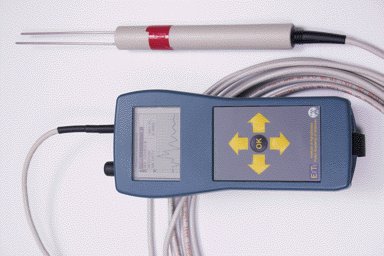
FOM/mts - handle meter of moisture content, temperature and salinity of soil
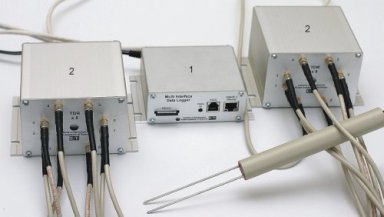
TDR/MUX/mpts – laboratory/field meter of moisture content, temperature and salinity of soil
More at Easy Test home page
Contact Acoustic Emission Detector
A new apple tester Contact Acoustic Emission Detector (CAED) was developed. CAED replaces sensory panel for quality assessment. A standard procedure requires 10 apples of a certain material only and lasts only 10 min to classify their texture to one of 10 grades.
CAED was developed under the project NR 12 0031 04 founded by The National Centre for Research and Development (NCBiR)
User manual you can download here (PDF in Polish)
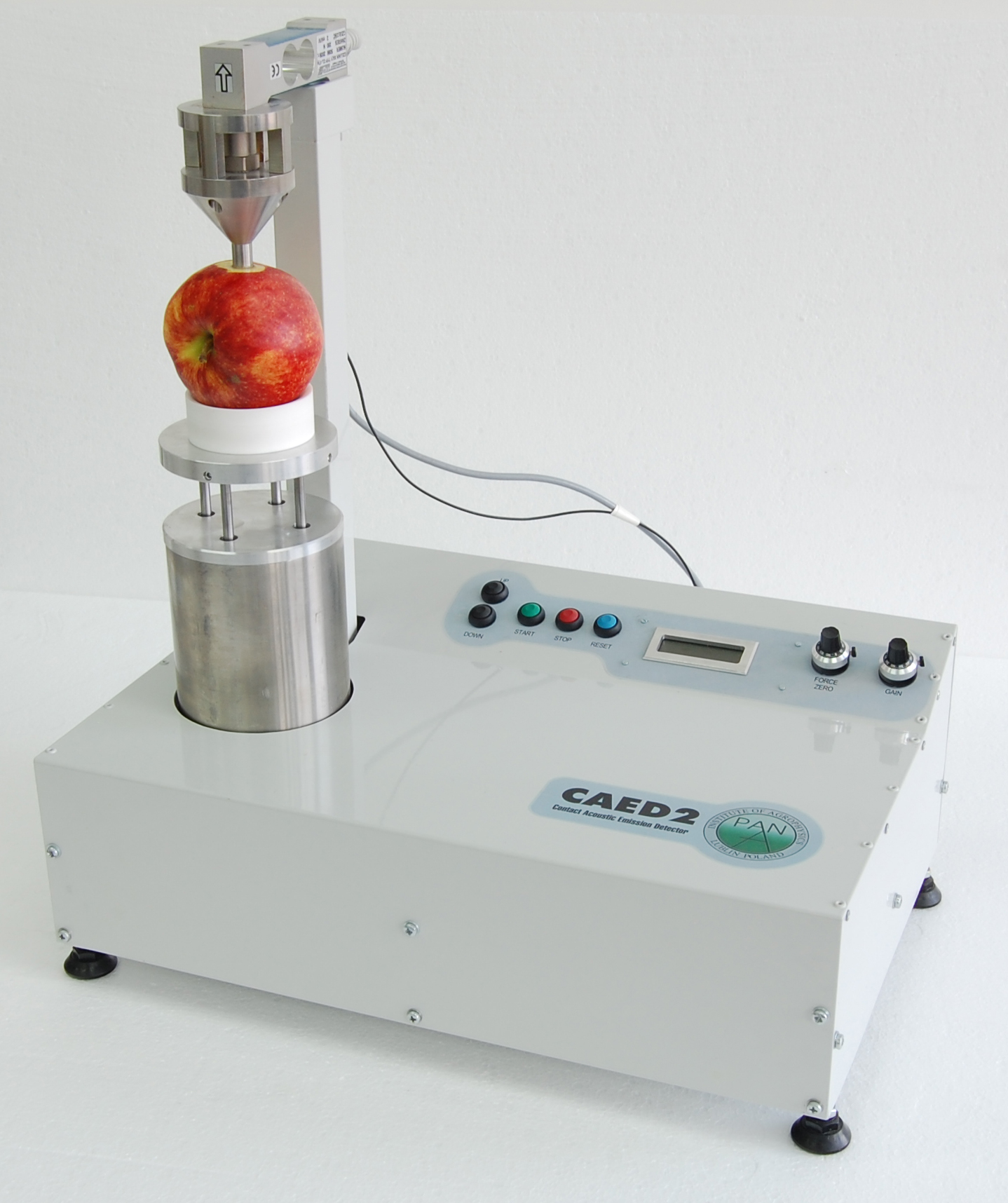

At present, a device for biospeckle evaluation is developed under the project NR 12 0137 10 founded by The National Centre for Research and Development (NCBiR)
Apparatus for estimation of rapeseed pod resistance to cracking
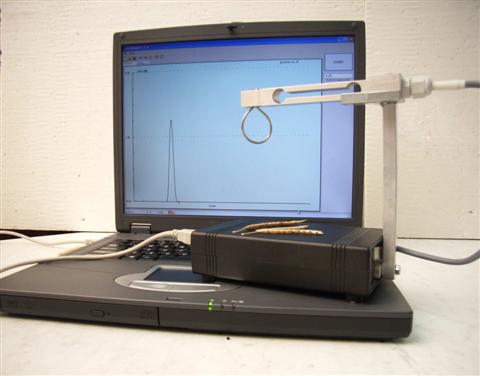 |
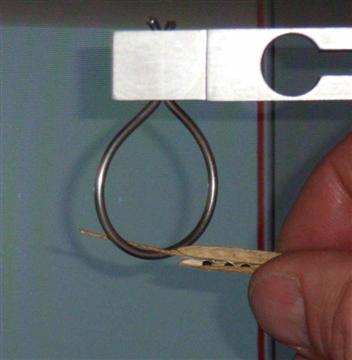 |
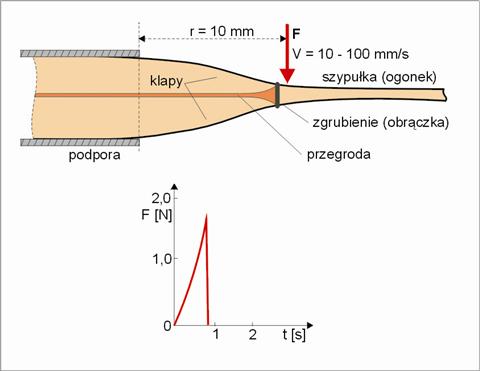 |
The apparatus is used for the estimation of rapeseed pod (siligue) resistance to cracking. Measurements conducted with the help of the apparatus are based on simplified bending test. The test determines the maximum value of force [F] causing rape seed pod to crack, and a graph of the force values is obtained. The process of bending is recorded and data are saved by means of a computer system. The method of measurement consists in the pod applying pressure (at a point near the characteristic ring-like bead on the pedicel) on the measuring grip of the force sensor (should be applied on the pod until the moment of its crack - characteristic cracking sound can be heard). Under the effect of the applied force, the bond between the pod halves and the parchment membrane to which seeds are attached gets broken. This method imitates the cracking and opening of pods under natural conditions, where external forces act on pods set on the pedicel (stalk), under the effect of which the pods are compressed, bent, impacted by neighbouring plants or by elements of harvesting machines.
In order to obtain more detailed information please contact:
Dr Tadeusz Rudko, tel. +48 81 744 50 61,
e-mail: t.rudko@ipan.lublin.pl
Silo with controlled atmosphere for storage of rapeseed
A prototype of a steel silo (dryer) with a capacity of 10 m3 was designed for drying and safe storage of rapeseed supplied to small oleochemical companies producing cold-pressed oil. The design of the silo dryer facilitates automated post-harvest drying, cooling, and storage of seeds in neutral gas atmosphere.
The silo dryer consists of an outer jacket with thermal insulation and an inner jacket made of perforated sheet. In the vertical axis of the container there is a drying agent inlet made of perforated sheet. The silo dryer is equipped with a set of sensors for monitoring the temperature and relative humidity in interseed spaces. The function of the silo dryer is to maintenance of high quality of consumable seeds and prevention of development of heat processes, moulds and fungi in stored seeds.
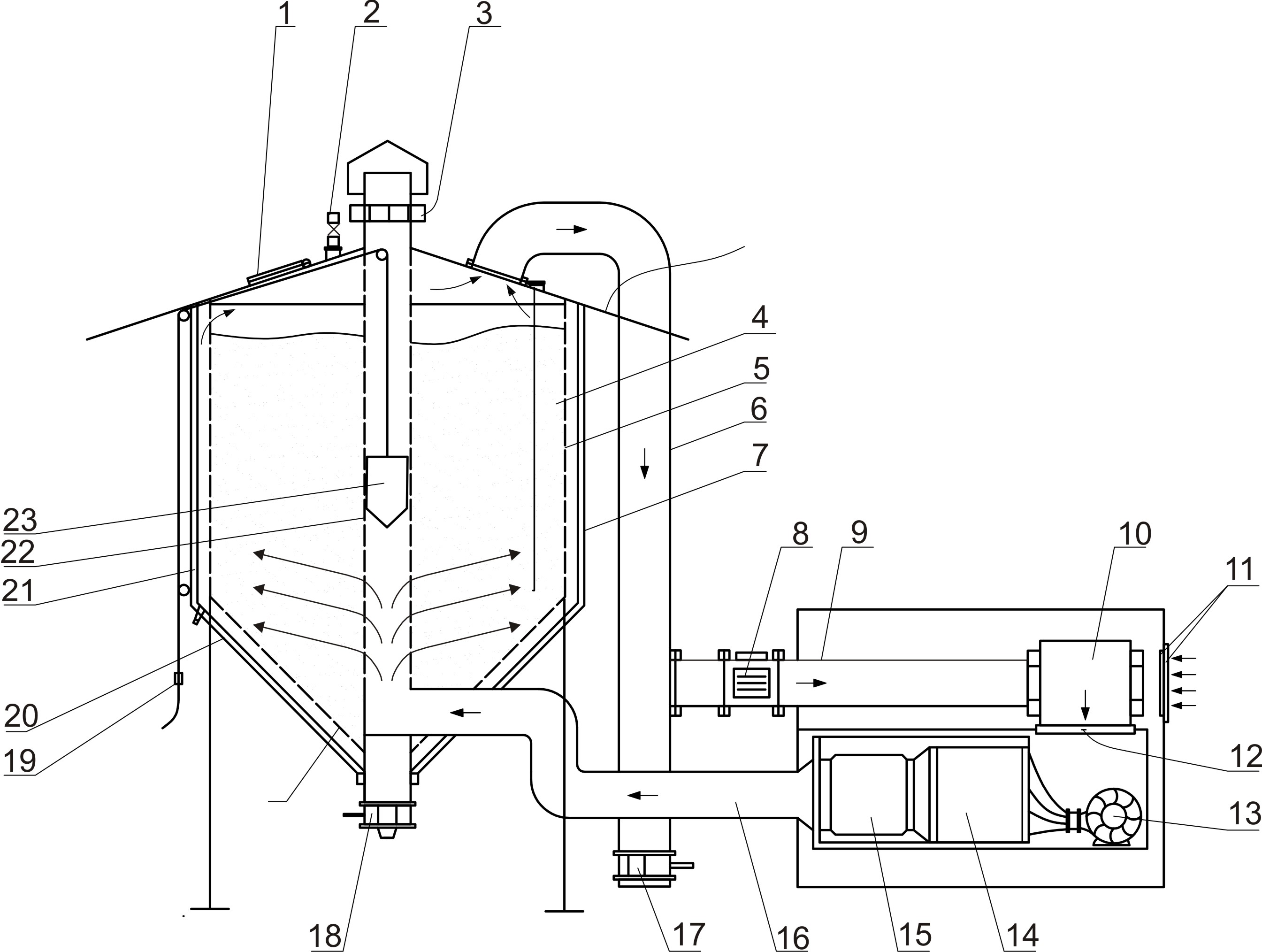 |
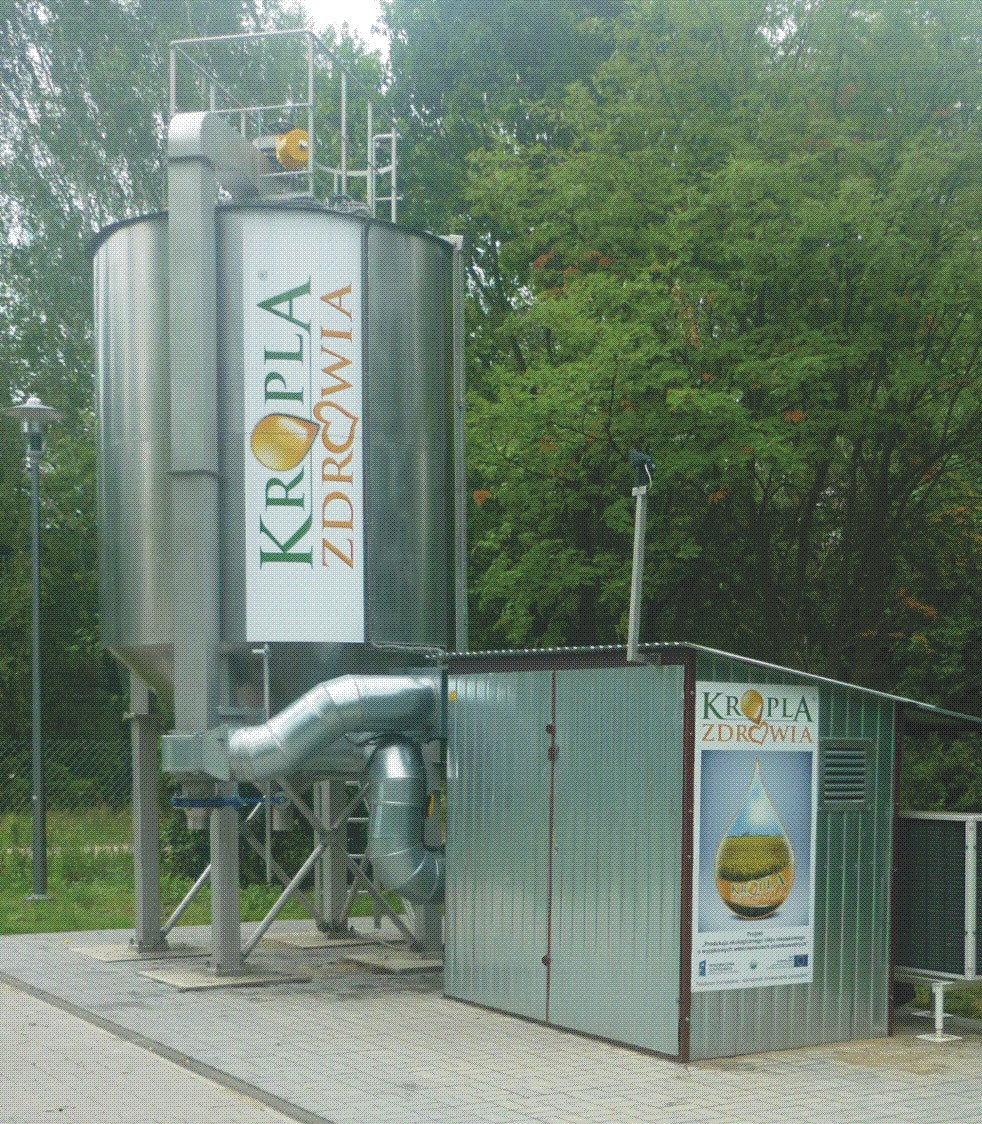 |
 Drukuj
Drukuj